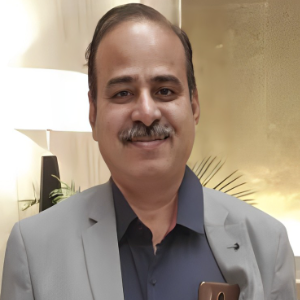Vitiligo is a chronic skin condition characterized by the loss of pigment-producing cells (melanocytes), resulting in depigmented patches on the skin. These patches often appear as white or light-colored spots and can affect any part of the body, including the face, hands, arms, and feet. While the precise cause of vitiligo remains unclear, it is thought to result from a combination of genetic, autoimmune, and environmental factors. Vitiligo can have significant psychosocial impacts, as it may affect a person's self-esteem and body image. While vitiligo itself is not contagious or life-threatening, its cosmetic appearance can lead to social stigma and emotional distress. Treatment options for vitiligo aim to restore pigment to the affected areas and may include topical corticosteroids, calcineurin inhibitors, phototherapy, and surgical procedures such as skin grafting or melanocyte transplantation. However, treatment efficacy varies depending on the extent and location of the depigmented patches. Managing vitiligo also involves sun protection to prevent sunburn and further depigmentation of the affected skin. Additionally, support groups and counseling can be beneficial for individuals coping with the emotional and psychological impacts of vitiligo. While there is currently no cure for vitiligo, ongoing research aims to better understand the underlying mechanisms of the condition and develop more effective treatments. Overall, a multidisciplinary approach involving dermatologists, psychologists, and other healthcare providers is essential for addressing the complex needs of individuals with vitiligo and improving their quality of life.

Ravi M Rathod
KMCRI, India
Dechelette Corinne
La Peau Autrement, France
Irina Sergeeva
Novosibirsk State University, Russian Federation
George Sulamanidze
Plastic Surgeon at Clinic of Plastic and Aesthetic Surgery and Cosmetology TOTALCharm, Georgia
Nino Tsamalaidze
Ltd Karabadini+, Georgia
Lina Petrossian
California University of Science and Medicine, United States
Surajbala Khuraijam
Manipur Health Services, India
Shrutimita Pokhariyal
Symbio, India
Yasser Mohammed Hassanain Elsayed
Egyptian Ministry of Health, Egypt



Title : Paraneoplastic Autoimmune Multiorgan Syndrome or PAMS: Paraneoplastic pemphigus revisited
Sergei A Grando, University of California Irvine, United States
Title : Modern non-invasive methods for in vivo assessment of skin
Georgios N Stamatas, SGS, France
Title : Personalized and precision dermatology through the view of biodesign-inspired translational & data-driven applications: Revolutionary skin treatments for every concern in clinical dermatology integrating skin care experts and consumers
Sergey Suchkov, N.D. Zelinskii Institute for Organic Chemistry of the Russian Academy of Sciences, Russian Federation
Title : The next generation of threads: Lifting, volumization, and biostimulation in one powerful triple action
George Sulamanidze, Plastic Surgeon at Clinic of Plastic and Aesthetic Surgery and Cosmetology TOTALCharm, Georgia
Title : Lymphoproliferative diseases in the practice of a dermatologist
Irina Sergeeva, Novosibirsk State University, Russian Federation
Title : Art, skin, and dermatology: Interdisciplinary perspectives
Dechelette Corinne, La Peau Autrement, France
Title : Comparative efficacy of omalizumab and dupilumab in children with Chronic Spontaneous Urticaria (CSU): A retrospective cohort analysis
Molynna Nguyen, University of Toledo, United States
Title : "Mirror mirror on the skin” — A low-cost community strategy to reduce melanoma disparities in Washington, D.C.
Kayla Sampson, Georgetown University School of Medicine, United States
Title : Vitiligo: Not just an aesthetic disorder
Mateja Starbek Zorko, University Medical centre Ljubljana, Slovenia
Title : Personalized and Precision Medicine as a unique avenue to have the healthcare model renewed to secure the national biosafety: Advanced skincare solutions in individualized cosmetology, reconstructive plastic surgery and the modern beauty
Sergey Suchkov, N.D. Zelinskii Institute for Organic Chemistry of the Russian Academy of Sciences, Russian Federation